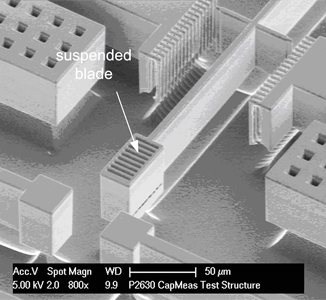MEMS Technology
Contact: Lina Sarro

Projects under this theme
AGRARSENSE
Odour Based Selective Recognition of Veterinary Diseases
Netherlands Organ-on-Chip Initiative
To develop new microphysiological platforms to better predict the effect of medicines, based on a combination of human stem cells and microtechnology.
History
Moore4Medical
Accelerate Innovation in emerging medical devices with open technology platforms
Graphene Flagship core 3: Transferless graphene in sensing applications
Monolithically integrated SiC sun sensor for Space
AlGaN/GaN High Electron Mobility Transistor (HEMT) Gas Sensor Platform Development
AlGaN/GaN High Electron Mobility Transistor (HEMT) Gas Sensor Platform Development
Piezoelectric Technology for Liquid Applications
Thermal management in 3d heterogeneous integration
Wafer-scale fabrication of graphene for sensing applications
Sensing Devices for Organ on Chip Technology
Fabrication of Ultrathin Dynodes for Timed Photon Counter
BiopsyPen: A portable coherent tomography scanner
Artificial Dielectric Layer for Terahertz application
MEMS nanoreactors for atomic-scale microscopy of nanomaterials under industrially relevant conditions
MEMS nanoreactors are used to study chemical reactions in high-resolution microscopes
Carbon nanotube and atomic layer based solid-state supercapacitors
Thin-film encapsulation of MEMS microcavities
With zero-level packaging or thin-film encapsulation, MEMS are already sealed during wafer processing.
MSc students
- Pradnya Gharpure
- Tibbe van der Biezen
Alumni
- Zhenhua Zhang (2023)
- Georgios Spernovasilis (2023)
- Tom Salden (2022)
- Sai Sandeep Lolla (2022)
- Michaël Chengshang (2022)
- Devashish Mantri (2022)
- Mattia Orvietani (2022)
- Oualid Zoumhani (2022)
- Hanxing Meng (2022)
- Leonardo Di Paola (2022)
- Secil Sanseven (2021)
- Shreyas Shankar (2021)
- Shivendra Kaushik Chilagani (2021)
- Mahdieh Shojaei Baghini (2020)
- Androniki Diakou (2020)
- Suzanne Onderdelinden (2020)
- Thijs Ten Bruggencate (2019)
- Chuqian Zhang (2019)
- Raghutham Ramesha (2019)
- Laura Morelli (2019)
- Rajarshi Sinha (2018)
- Sander Van Dijk (2018)
- Roberto Pezone (2018)
- Francesco Cocchia (2018)
- Levar Goossens (2018)
- Sarat Shankar Sinha (2018)
- Joost Romijn (2018)
- Anna Sabatini (2018)